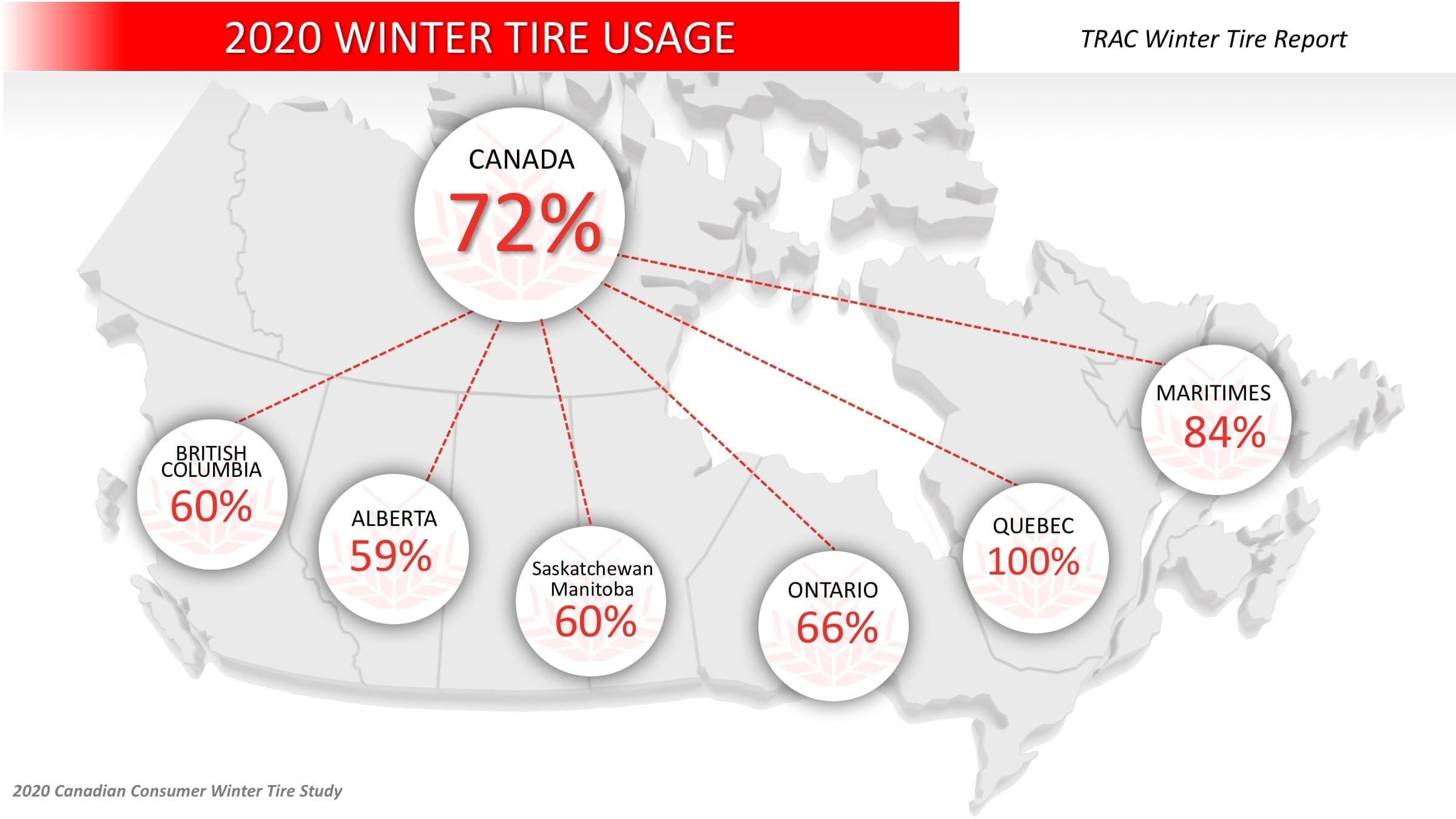Quebec drivers set the standard for winter driving in Canada
Montreal, November 9, 2020 – Eighty-eight per cent of Quebec drivers believe their…
Continue Reading
Nov 18, 2020
There are multiple reasons why it’s beneficial to have winter tires.
The 1950s police drama “Dragnet” inspired several catch phrases including “The story you are about to see is true”, “We were working the day watch”, and my personal favourite “Just the facts, ma’am”. Apparently, Sergeant Joe Friday, a fictional character created and portrayed by Jack Webb, never actually said “Just the facts, ma’am” but somehow it stuck. What is sticking in my mind these days are important facts related to winter tire usage in Canada from TRAC’s recently released 2020 Canadian Consumer Winter Tire Study, and supported by other studies from Traffic Injury Research Foundation (TIRF) and Manitoba Public Insurance. In keeping with the Dragnet theme, “The facts you are about to read are true”:
Among the 35% who reported not using winter tires, their rationale included:

Those who find winter tires a costly endeavour, perhaps doing the math may alleviate some of the financial concerns, and TRAC’s Be Tire Smart Winter Tire Cost Calculator can do just that, as it clearly shows that drivers can own a set of winter tires for a reasonable monthly cost. Besides, winter tires may bring some unexpected savings when it comes to fuel economy and insurance rates, such as:
In reality, Sergeant Joe Friday typically used the phrase “All we want are the facts, ma’am”, and sometimes “All we know are the facts, ma’am”. Regardless of the exact wording of that immortal catch phrase, when it comes to the facts, dedicated winter tires—designed only for use in winter—are hands down the best and safest option.
*Originally published with Autosphere.ca
Tire and Rubber Association of Canada
5409 Eglinton Ave W, Suite 208
Etobicoke, ON M9C 5K6
Tel: (437) 880-8420
Email: [email protected]